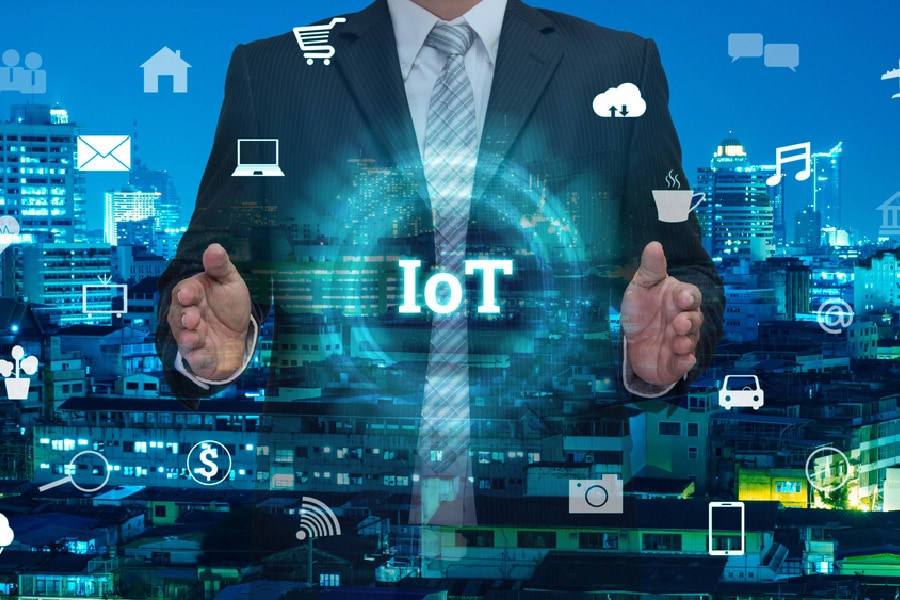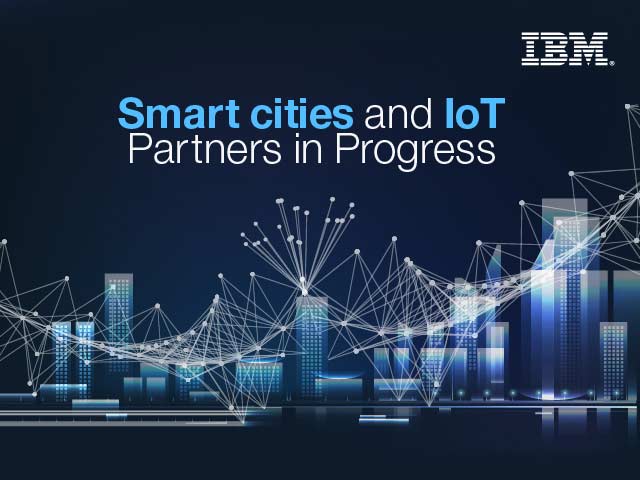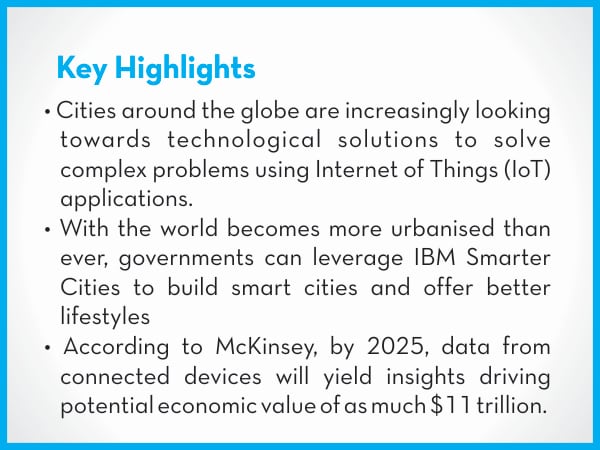
Using IoT to make our cities more intelligent
Buildings, offices, and homes will be at the forefront of the implementation of IoT in our daily lives using cognitive technology

Imagine you are at a hotel in New Delhi and the air outside is thick with smog. What if an app in your smartphone buzzes with a message of air quality outside and that lets you decide whether or not to venture out?
Or let’s assume you have to reach the airport and a cab arrives at your doorstep at a particular time, based on your clock that estimates the time to travel depending on the traffic? Or say, your smartphone guides you to the nearest available parking slot so you have more time for an enjoyable, hassle-free shopping trip?
Welcome to the intelligent city. An eco-system where connected devices communicate with each other to make our lives simpler and more intuitive. Around the world, cities are increasingly looking towards technological solutions to solve a raft of challenges: traffic management, energy use and waste management. IoT applications leverage ubiquitous connectivity, Big Data and Analytics to enable cities to become smarter.
IoT is also transforming our homes. For example, a smart thermostat, one of the many home automation devices can turn your air-conditioner on and off, but only when you need it. Or if it senses that you aren’t home, it can switch off your lights to save bulb life and electricity costs.
Buildings, offices, and homes will be at the forefront of the implementation of IoT in our daily lives using cognitive technology. Cognitive enables smart insights using data it collects from sensors attached to various appliances and devices. From detecting waste levels in bins for proper waste management to smart parking and water management using IoT - the possibilities are numerous.

IBM has deployed its Smart Cities™ solutions to digitally transform the Rashtrapati Bhavan, the official residence of the President of India. It established an Intelligent Operations Center (IOC) to monitor and enhance the performance of critical infrastructure at the presidential estate which is spread across 330 acres, and home to over 5000 residents. The IOC addresses challenges that are inherent to townships - water supply, security, electrical infrastructure and waste management.
With IoT, devices gather data and are able to analyse vast amounts of structured and unstructured information, enabling intuitive and smart decision making. According to a 2015 McKinsey’s ‘Unlocking the potential of Internet of Things’, by 2025, data from connected devices will yield insights driving the potential economic value of as much $11 trillion! With a cognitive backbone added to these smart devices, businesses get a game changing platform that can rapidly synthesise information and actively learn from it, continuously adapting and pre-empting business decisions.
Cognitive technologies can be extended to enhance citizen services, giving governments new opportunities to improve citizens' lives and deliver optimised programme and service outcomes.
To learn more about how cognitive technology is testament to building smart cities, signup for IBM Cloud Innovation Forum event.





